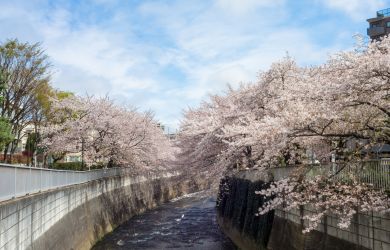
November 11, 2010
November 11, 2010
Originally published on metropolis.co.jp on November 2010 We Don’t Need No Education Regarding “Grounding the JET” (The Last Word, October 29): The JET Programme is at its heart a grassroots cultural exchange and diplomacy effort. There are now JET alumni in many established positions in politics, business, academia and numerous other fields in society in […]
By Metropolis
Originally published on metropolis.co.jp on November 2010
We Don’t Need No Education

Illustration by Shane Busato
Regarding “Grounding the JET” (The Last Word, October 29): The JET Programme is at its heart a grassroots cultural exchange and diplomacy effort. There are now JET alumni in many established positions in politics, business, academia and numerous other fields in society in a range of countries, and this is providing a significant return on investment to Japan. In fact, at a time when interest in Japan and Japan-related study is declining in relation to China and Korea, the JET Programme is one of the last lines of defense: a feeder of academics, teachers and others who maintain an interest in Japan and help spread that interest.
This is an issue of significant concern to the Japanese government, and therefore the “return on investment” goes way beyond the measurements that the author cites. The reference to English test scores is misleading, as JETs have never had any connection to those scores. A harder thing to measure is the number of Japanese students who have been inspired to study abroad or go on to other pursuits as a result of interaction with JETs.
While there’s always been room for improvement in English teaching and the JET Programme, throwing out the baby with the bath water right now would be a short-sighted mistake for Japan. —Steven Horowitz, founder and publisher of JetWit.com, Brooklyn, NY
“No one has ever proven that providing native speakers to Japanese schools is of any help to students [with their English].”
As this was never the intention of the JET program, you can’t judge it to be a failure. JET has always been three parts cultural and one part language. If you are interested in improving the classroom experience for Japanese learning English, you don’t need foreigners at all. The real problem lies with the way Japan trains its English teachers at university. Until university English teacher programs require a year abroad in an English-speaking country as part of their training, you will never have anything more than frustrated grammar translation authoritarians in the secondary school classroom, teaching meaningless components of entrance and graduation exams. —jeffrey*
I agree with the last paragraphs of the article. The Japanese do not take the teaching of English seriously enough. If they want professionals—people who know their subject, know their job and have the ethics to work hard—then the non-Japanese should be treated as such, not as spare-part clowns. The whole ethos and approach to non-Japanese teachers is still characterized by an immature mindset and “monkey in a zoo” mentality. Invest in an adult as an adult, treat people with respect and trust, and see the results you get. Equal rights, equal pay, equal opportunity—to suggest JETs are “overpaid” is laughable. —njoyme*
Last Rites
Regarding “The Real Last Word” (The Last Word, October 22): I wonder how many foreigners are given the fourth option not discussed in the article: a lovely oil drum filled with cement/sea burial package offered by the local yakuza? —OKusa**
Awesome! I reckon the Yaks would be far more competitive than the $5,000 price tag quoted—whoever offers that is having a laugh! I’d be more than happy to be fed to the sharks (if they’d eat me). —BurakuminDes**
* via Metropolis online
** via Japan Today online
Metropolis wants to hear from you. To send your comments, . Note that letters may be edited for length and clarity.







